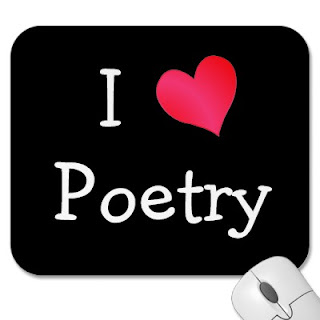Why I love Poetry
This is just my own personal reflection on why I love poetry and why I think it has an important place in the life of a Christian. I came quite late into poetry. I fell in love with it by chance and found that it touched me deeply.
Often people turn to poetry to express those sentiments that
are inexpressible. It’s particularly helpful at important thresholds in our
lives: times of decision, moments when the heart is breaking or moments when
the heart is full of love. Poets have an amazing ability to speak for us and
for our time. As Terry Eagleton1 says, “poems reach for places that other forms
of writing just can’t reach.”
The reason I love it is because of how it works. It’s how I
want my life to work. Here’s roughly how it works.
Poetry is a dynamic interplay between the word and what the
word means. In technical terms it’s about how the signifier (the word) connects
with the signified (the meaning). It’s the unity of both parts. First of all let’s take the words themselves. The words in a
poem become language that draws attention to itself. It’s heightened, rich,
intensified speech. So we experience the words as material events. They flaunt
themselves at us. Poetry is something that is done to us rather than read or
said to us. The reason many people never read poetry is because it forces us to
wrestle with language rather than just consume it. You consume a newspaper but
with a poem you listen for the tone, the pitch, the mood, the rhythm. You have
to let the words hit you.
Then there’s the other part, the meaning. Poems create
stories that reconfigure our world. They present truth in a clever, fictional
kind of way in order to make some deeper point about it. You look out for the
idea, the storyline and the moral argument. You wrestle with what the poet’s
trying to say. And the meanings of a poem are so fundamentally bound up with
our experience of the words. The two can’t be separated. So to grasp what is
being said, we have to grasp how it is being said.
Here is an example . This is from Seamus Heaney’s
latest collection. Just listen and experience the words and draw from them some
meaning. This is called “Miracle”
Not the one who takes up his bed and walks
But the ones who have known him all along
And carry him in -
Their shoulders numb, the ache and stoop deeplocked
In their backs, the stretcher handles
Slippery with sweat. And no let up
Until he’s strapped on tight, made tiltable
and raised to the tiled roof, then lowered for healing.
Be mindful of them as they stand and wait
For the burn of the paid out ropes to cool,
Their slight lightheadedness and incredulity
To pass, those who had known him all along.
To get the most out of a poem, you have to wrestle with both
the experience of the words and their meaning. They can’t be separated. I think
the same is true of our lives as followers of Jesus. We need to pay attention
to both if we want to have a fulfilled time on planet earth. Let me give you a
personal example. Much of my spiritual journey until the last few years focused
on meaning. The emphasis was on searching out God’s will for my life, finding
answers to thorny problems and upholding fixed certainties about God who is.
In Poetry experience and meaning must be interwoven, with
the author in mind. We still need meaning. What’s wonderful about art and
poetry is that it is the product of someone who has something to give us.
Without some sense of authorship, we close ourselves off to learning; we
end up just bringing our own narrow thoughts to our lives. Our ideas about
ourselves aren’t as imaginative as God’s ideas about us and we have to trust
that he’s doing something creative with us even if it seems very complex.
A lot of poems are tricky and that’s why I love them because
our lives are tricky. As Christians we can’t escape that trickiness just by
saying that life is just a series of random experiences. Yet, neither can we
escape it by simply saying that God makes everything meaningful in some way and
leave it at that. That’s lazy. So what do we do? We jump right into the Gethsamene cry of desolation. We
allow the sounds and rhythms of those moments of loss and pain and mystery to
form us and shape us. We let our lives hit us at full force. We wrestle with
the language of our individual experiences. We keep reading and re-‐reading,
listening again and again. And all the time we’re asking “God, in light of all this,
what ARE the meanings of my life?”
I wonder which of us are currently in a time of “experience”
in our lives? Smelling it, feeling it, shouting it, crying it – but perhaps
with very few clues as to what it means. Some of us, on the other hand, will be
deep in the meaning of our lives but perhaps too frightened to enter into the
full experience of it. It’s tricky holding the two together.
The outcome of our lives may be surprising, especially to
others. But I think in poetry we find a God-‐given healing quality, in that it
helps us fully step into our lives. Just as we allow the words of a poem to be
done to us, so we allow the experience of our unique life to properly impact
us. Just as we search in poetry for multiple meanings as well as the author’s
intention, so we reflect and wrestle about the meaning of our own existence in
participation with the divine author.
Christ joins us in our experience. He joins us in the
meaning. If we’ll allow him, he’ll knit the two together. And I think that’s
what makes all the difference.



Beautifully structured. no doubt this confirms what I meant in one of my poems... "Poetry is a language of the 'Gods'".
ReplyDelete